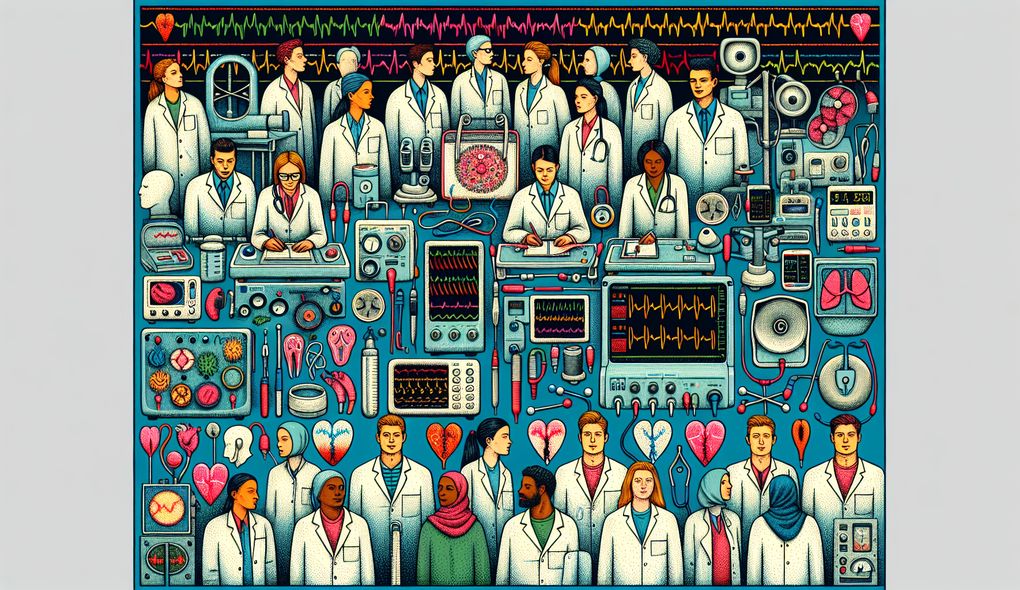Are you certified in Basic Life Support (BLS) and Advanced Cardiovascular Life Support (ACLS)? If yes, please provide details.
JUNIOR LEVEL

Sample answer to the question:
Yes, I am certified in Basic Life Support (BLS) and Advanced Cardiovascular Life Support (ACLS). I obtained my certifications during my medical school training and have kept them up to date throughout my career. BLS and ACLS certifications are essential for any healthcare professional, especially for someone in the field of cardiology. These certifications ensure that I have the knowledge and skills to respond effectively in emergency situations and provide life-saving interventions. I am confident in my ability to apply BLS and ACLS protocols in various clinical scenarios to provide optimal patient care.
Here is a more solid answer:
Yes, I am certified in Basic Life Support (BLS) and Advanced Cardiovascular Life Support (ACLS). I obtained my certifications during my medical school training and have kept them up to date throughout my career. During my residency in internal medicine and cardiology, I had numerous opportunities to apply my BLS and ACLS skills in real-life emergency cases. For example, I was able to successfully resuscitate a patient who experienced cardiac arrest in the emergency department. I performed high-quality chest compressions, administered medications, and utilized advanced airway management techniques as per ACLS guidelines. These experiences have reinforced the importance of staying calm under pressure and having the necessary skills to save lives in critical situations. Additionally, I regularly participate in ACLS recertification courses to ensure I am up to date with the latest guidelines and protocols.
Why is this a more solid answer?
The solid answer provides specific examples of how the candidate has applied their BLS and ACLS certifications in real-life scenarios, demonstrating their proficiency and experience. The answer also mentions the candidate's commitment to staying updated with the latest guidelines and protocols through regular recertification courses.
An example of a exceptional answer:
Yes, I am certified in Basic Life Support (BLS) and Advanced Cardiovascular Life Support (ACLS). Throughout my medical training, including my residency in internal medicine and cardiology, I actively sought opportunities to enhance my skills in BLS and ACLS. I participated in advanced simulation training, where I led resuscitation scenarios and acted as the team leader, coordinating the efforts of the healthcare team in a high-stress environment. These simulations allowed me to further develop my decision-making abilities and improve my communication and leadership skills. In addition to clinical practice, I have also contributed to research projects focused on optimizing the implementation of ACLS guidelines in different hospital settings. This research has provided valuable insights into improving patient outcomes in cardiac emergencies. I am dedicated to continuously expanding my knowledge and skills in this field by attending conferences and staying updated with the latest advancements in resuscitation science.
Why is this an exceptional answer?
The exceptional answer goes above and beyond by highlighting the candidate's proactive approach to enhancing their BLS and ACLS skills through advanced simulation training and research projects. The answer also demonstrates the candidate's commitment to staying updated with the latest advancements in resuscitation science through attending conferences. This showcases their dedication to continuous improvement and professional growth in the field of cardiovascular care.
How to prepare for this question:
- Review the BLS and ACLS guidelines and protocols to ensure you are familiar with the current recommendations.
- Reflect on your past experiences where you have applied BLS and ACLS skills. Prepare specific examples to showcase your competence in these areas.
- Consider taking additional courses or attending workshops focused on advanced resuscitation techniques to further enhance your knowledge and skills.
- Stay updated with the latest research and advancements in cardiovascular care, especially in the field of resuscitation science.
- Practice communication and leadership skills, as these are crucial when coordinating resuscitation efforts as a team leader.
What are interviewers evaluating with this question?
- Basic Life Support (BLS)
- Advanced Cardiovascular Life Support (ACLS)

